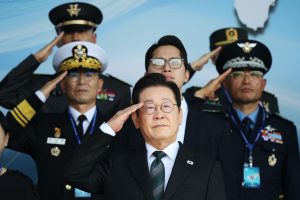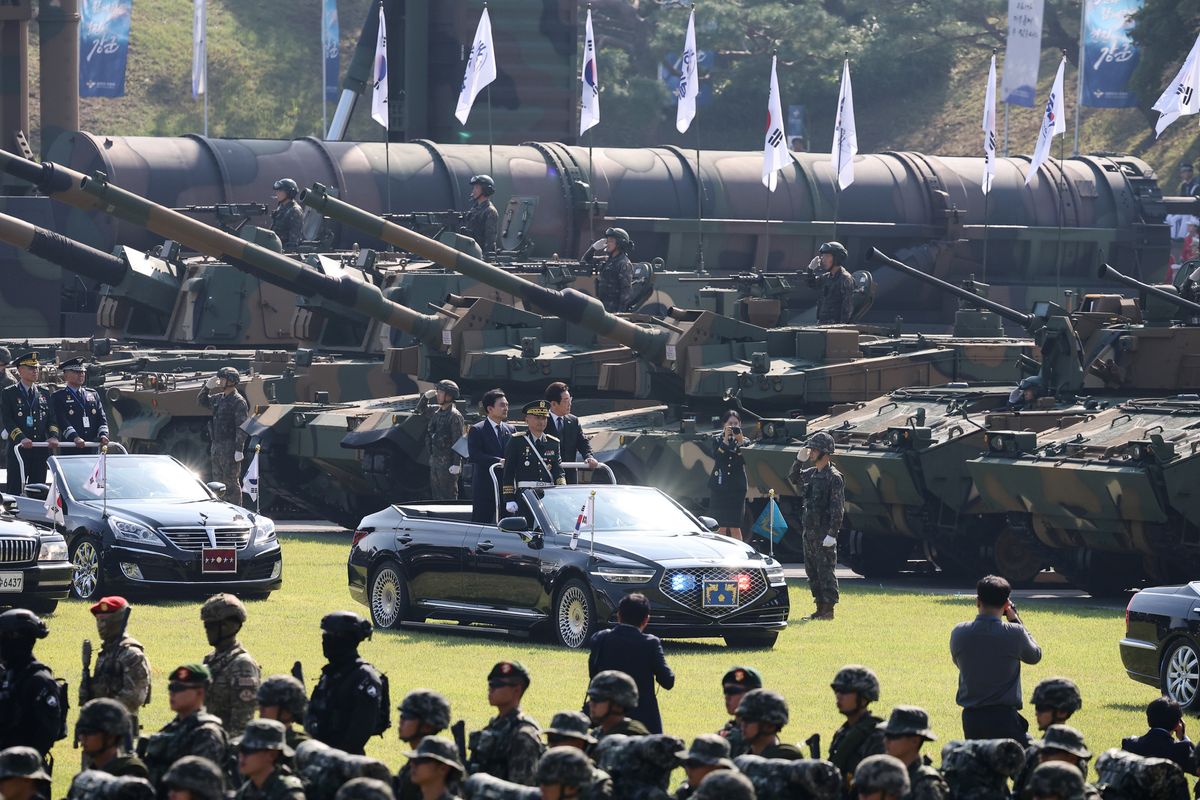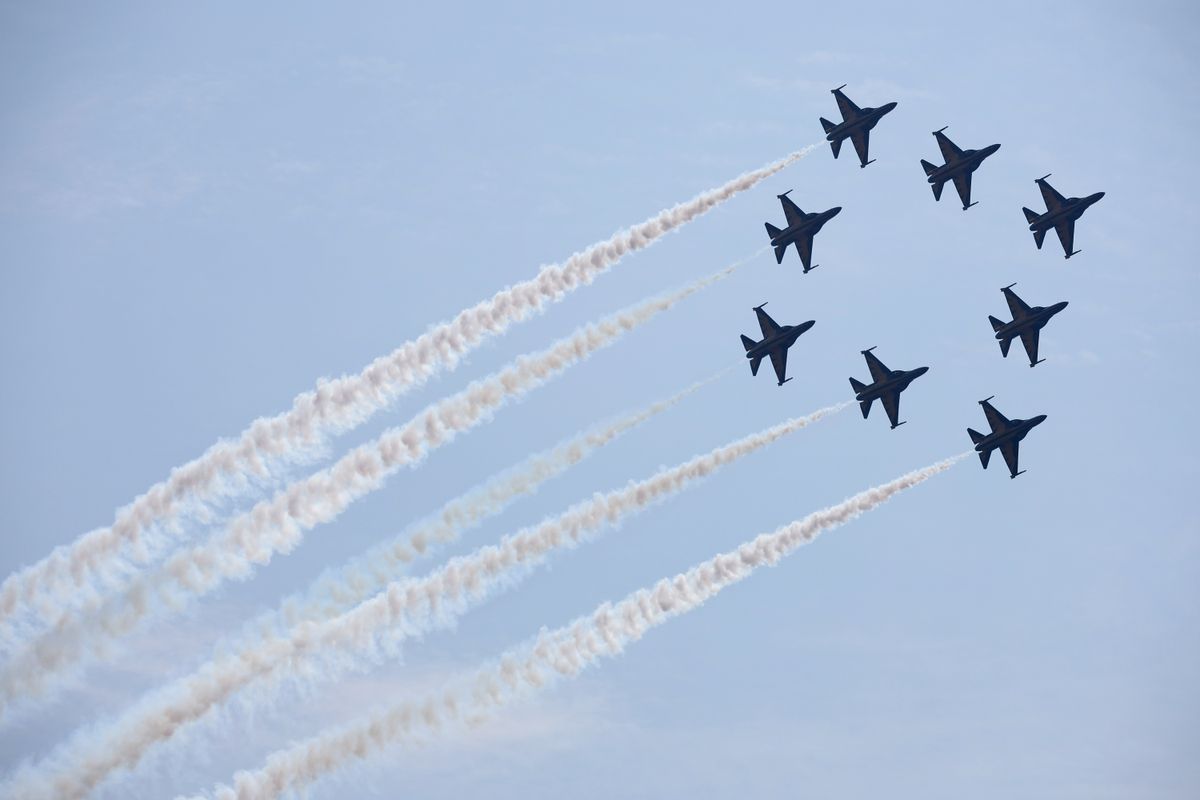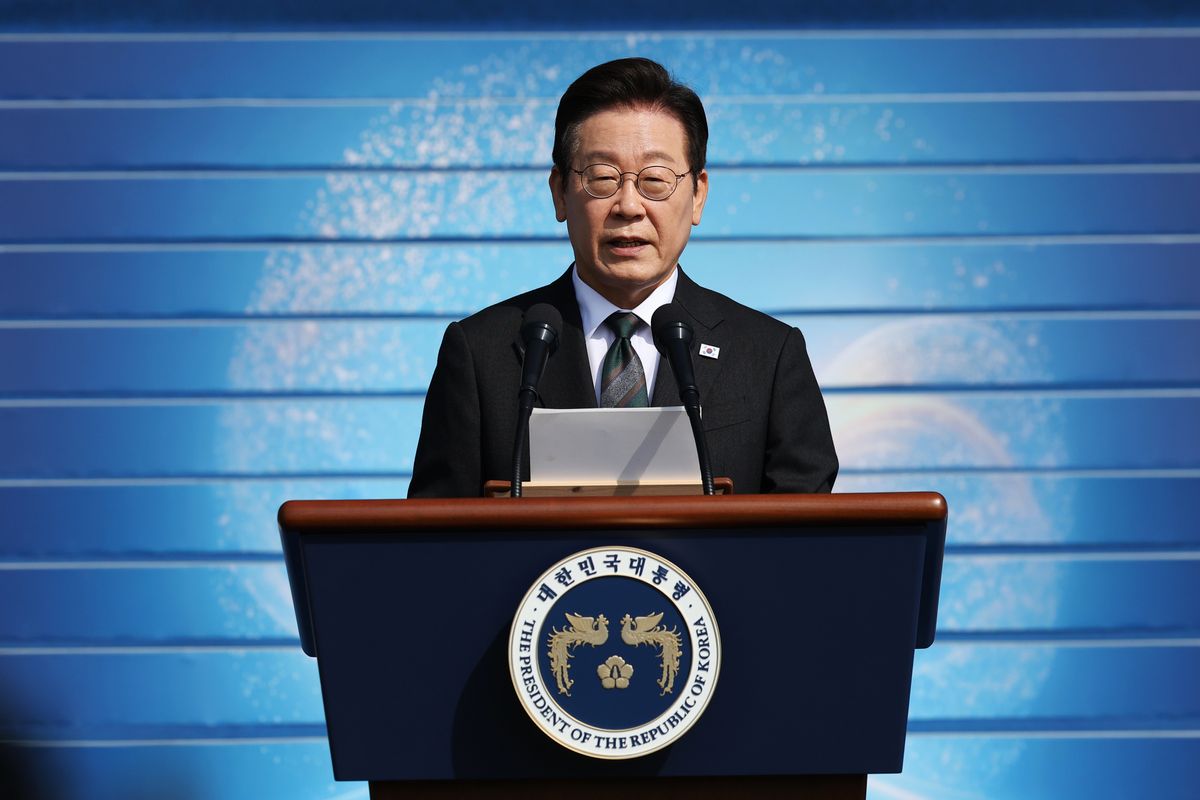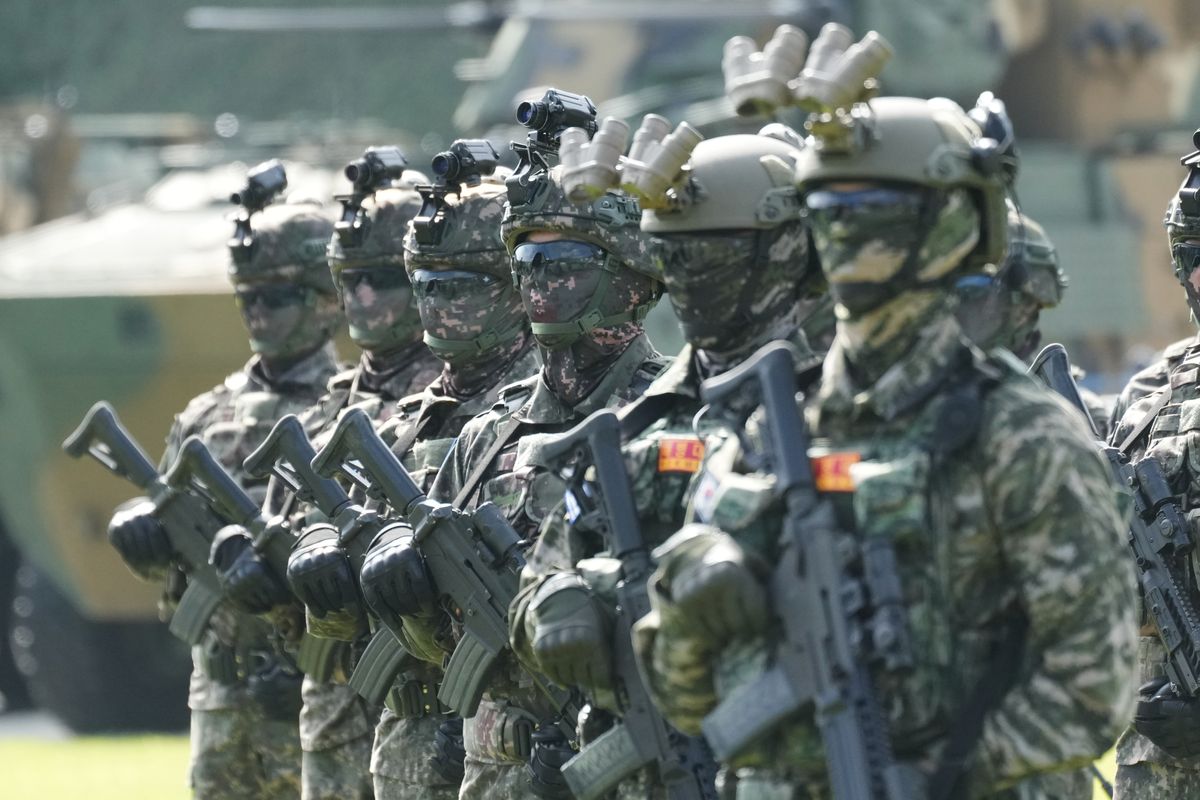SEOUL, South Korea (AP) — South Korea’s president vowed Wednesday to sharply increase defense spending and build a more self-reliant military, as U.S. President Donald Trump’s “ America First” agenda raises questions about the U.S. security commitment to its Asian ally.
A tariff war instigated by Trump’s administration and his transactional approach to security threaten to erode many South Koreans’ trust in the U.S. There are concerns that he may demand much higher South Korean payments for the U.S. military presence in the country or possibly downsize America’s military footprint to focus more on China.
In an Armed Forces Day ceremony Wednesday, South Korean President Lee Jae Myung described the South Korea-U.S. military alliance as “solid” and didn’t mention any concerns about Trump’s policies. But he repeatedly stressed an intention to build a strong military that can independently defend the country from external threats.
“We should move toward a strong, self-reliant defense, based on our pride and confidence in our military power,” Lee said. “To ensure peace and prosperity for the Republic of Korea, we must not depend on anyone else but strengthen our own power.”
Building a more independent military
To boost a self-reliant defense posture, Lee said his government would increase next year’s defense spending by 8.2% to introduce advanced weapons systems like AI combat robots, autonomous drones and precision-guided missiles.
The government will also actively foster the defense industry and improve soldiers’ welfare by upgrading their service conditions and compensation systems, he said.
Lee, a liberal who espouses greater peace on the Korean Peninsula, made no direct mention of North Korean military threats and may have been attempting to avoid provoking the country, though he said South Korea’s spending on defense is 1.4 times more than North Korea’s gross domestic product. Bolstering South Korea’s military readiness would clearly be aimed at increasing deterrence against potential aggressions from North Korea, which has nuclear weapons.
The North recently has repeatedly rejected Lee’s overtures, though it signaled interests in restoring diplomacy with Trump.
A weakening of the U.S. security commitment could seriously shake South Korea’s security as it has no nuclear weapons and is under the so-called U.S. “nuclear umbrella” protection, which guarantees a devastating American response in the event of an attack on its ally. The U.S. has about 28,500 troops in South Korea.
Transferring wartime operational control
A potentially sensitive issue for the alliance is an implementation of a previous agreement to transfer wartime operational control of the allied forces to a binational command led by a South Korean general with a U.S. deputy. The commander of the U.S. forces in South Korea currently has wartime operational control of South Korea’s military.
Many South Koreans view reclaiming their own military’s wartime operational control as a matter of national sovereignty but others worry that would result in loosening of the alliance. Some observers say the Trump administration would use the transfer as a way to reduce spending and concentrate on China but it would still want to maintain influence on the Korean Peninsula.
Elbridge Colby, Trump’s undersecretary of defense for policy, said at his Senate confirmation hearings in March that he would carefully review the “delicate issue” of transferring wartime operational control.
“I believe that President Trump’s vision of foreign policy involves empowering capable and willing allies like South Korea, and thus I support efforts to bolster South Korea’s role in the alliance,” Colby said.
Colby provided more detailed comments in a 2024 interview with Yonhap news agency.
“South Korea is going to have to take primary, essentially overwhelming responsibility for its own self-defense against North Korea because we don’t have a military that can fight North Korea and then be ready to fight China,” he said.
Lee reaffirmed his support of the transfer Wednesday.
“The Republic of Korea will lead a joint defense posture with Washington by regaining the operational control based on firm ROK-U.S. alliance,” Lee said. “Solid combined defense capability and posture will not only bring peace and stability to the Korean Peninsula but also contribute to the region’s stability and shared prosperity.”
By HYUNG-JIN KIM and KIM TONG-HYUNG
Associated Press

